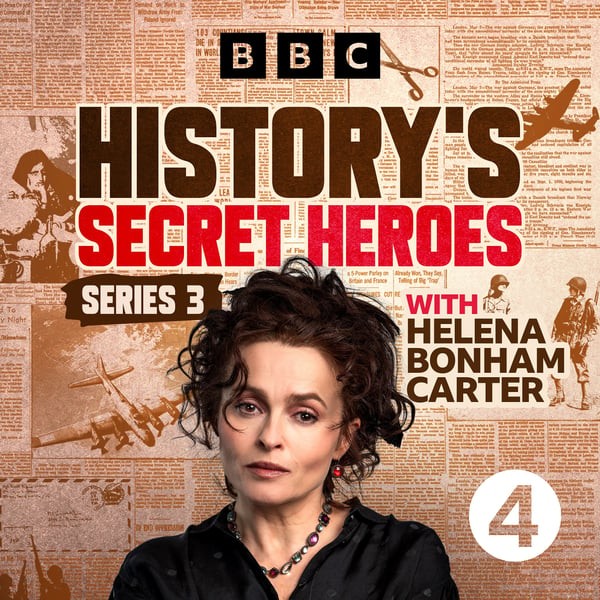History's Youngest Heroes: Louis Braille: Code Maker
History's Heroes
BBC
4.8 • 704 Ratings
🗓️ 13 January 2025
⏱️ 29 minutes
🧾️ Download transcript
Summary
After losing his sight in a childhood accident, a young Frenchman invents a tool that will change the lives of blind people around the world.
Nicola Coughlan shines a light on extraordinary young people from across history. Join her for 12 stories of rebellion, risk and the radical power of youth.
This programme has been edited since first publication to remove the inaccurate suggestion that Charles Barbier’s raised dot code system was first developed for military use.
A BBC Studios Audio production for BBC Radio 4 and BBC Sounds.
Producer: Elaina Boateng Series Producer: Suniti Somaiya Executive Producer: Paul Smith Written by Alex von Tunzelmann Commissioning editor for Radio 4: Rhian Roberts
Transcript
Click on a timestamp to play from that location
| 0:00.0 | Did you know that you can listen to many of your favourite podcasts first on BBC Sounds? |
| 0:06.6 | Like Desert Island Discs, where you can hear castaways like Cher, Gareth Southgate and Nick Cave, |
| 0:12.7 | and enjoy longer versions of the music they've picked. |
| 0:15.7 | Good things come to those who don't wait. |
| 0:18.7 | Listen to your favourite podcasts first on BBC Sounds. |
| 0:23.9 | BBC Sounds, music, radio, podcasts. |
| 0:28.9 | I first noticed that I was losing my vision when I was a teenager, and I've been losing it |
| 0:35.6 | ever since just by degrees. |
| 0:38.0 | Andrew Leland wrote a book called The Country of the Blind. |
| 0:42.2 | Around 20 years ago, when he was in high school, he started to lose his sight. |
| 0:46.9 | You know, every two years or so, when I go back to my retinal specialist, they say, |
| 0:51.3 | yep, you've lost another chunk. |
| 0:53.6 | Now, Andrew is legally blind. He sees |
| 0:57.4 | 5% of what a fully cited person would see. He compares it to look into a keyhole. The eye disease |
| 1:05.0 | that I have, which is called retinitis pigmentosa, is extremely gradual. Sometime in the next, you know, however many years, five years, |
| 1:13.3 | 10 years, you know, that 5% will go down to 1% or a fraction of a percent. |
| 1:18.3 | One almost takes for granted how much one uses one's vision. |
| 1:23.2 | And when sight is lost, you have to learn how to do things differently. You have to confront |
| 1:33.1 | the emotional part of that first. There's this, there's this feeling of loss and of, really, |
| 1:39.1 | of grief. You have to sort of mourn the loss of vision because it is something that's so |
| 1:43.8 | central to how you are oriented in the world. And then you have to sort of mourn the loss of vision because it is something that's so central to how you are oriented in the world. |
| 1:47.4 | And then you have to, the sort of second stage, I would say, is more practical. |
... |
Transcript will be available on the free plan in -74 days. Upgrade to see the full transcript now.
Disclaimer: The podcast and artwork embedded on this page are from BBC, and are the property of its owner and not affiliated with or endorsed by Tapesearch.
Generated transcripts are the property of BBC and are distributed freely under the Fair Use doctrine. Transcripts generated by Tapesearch are not guaranteed to be accurate.
Copyright © Tapesearch 2025.

